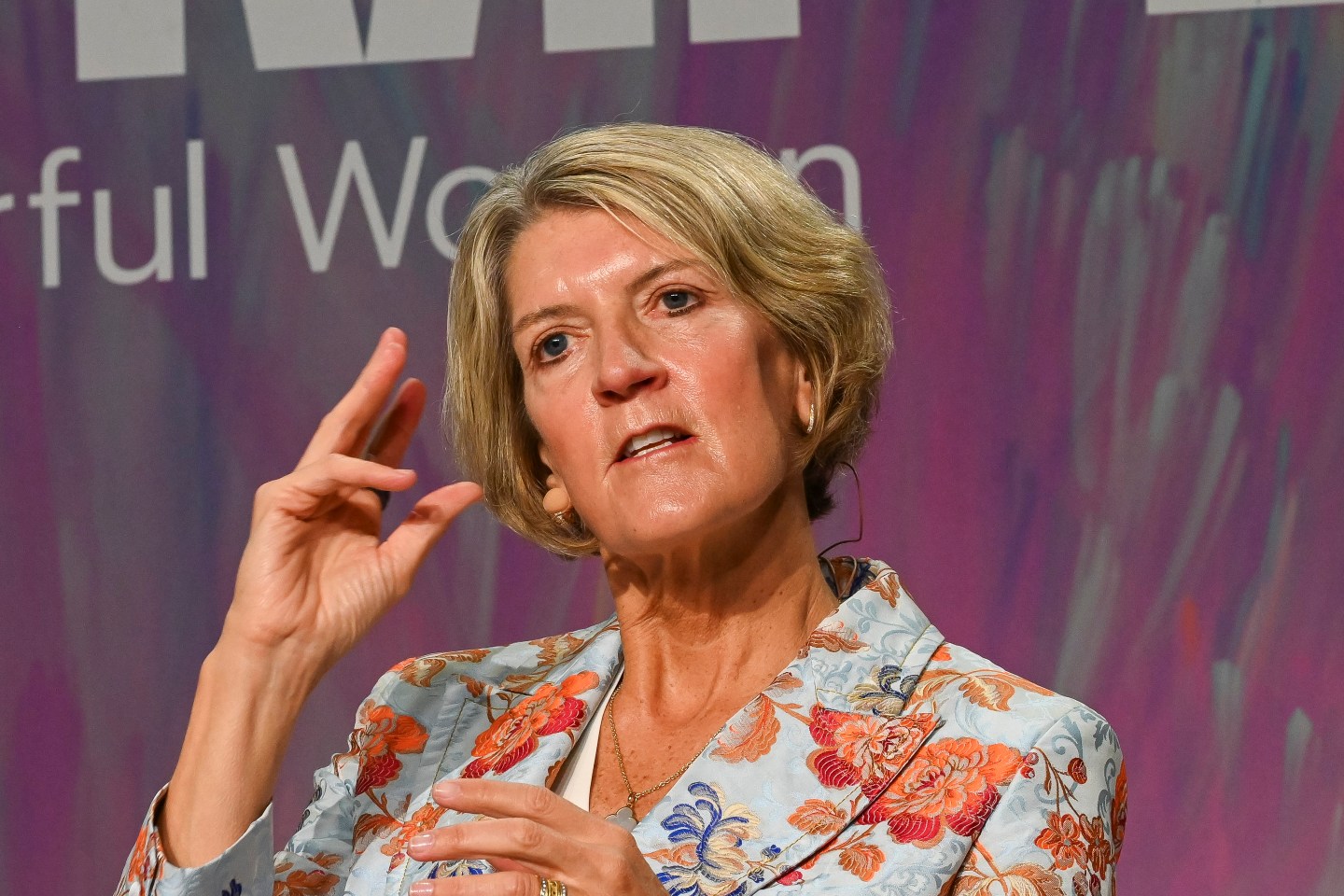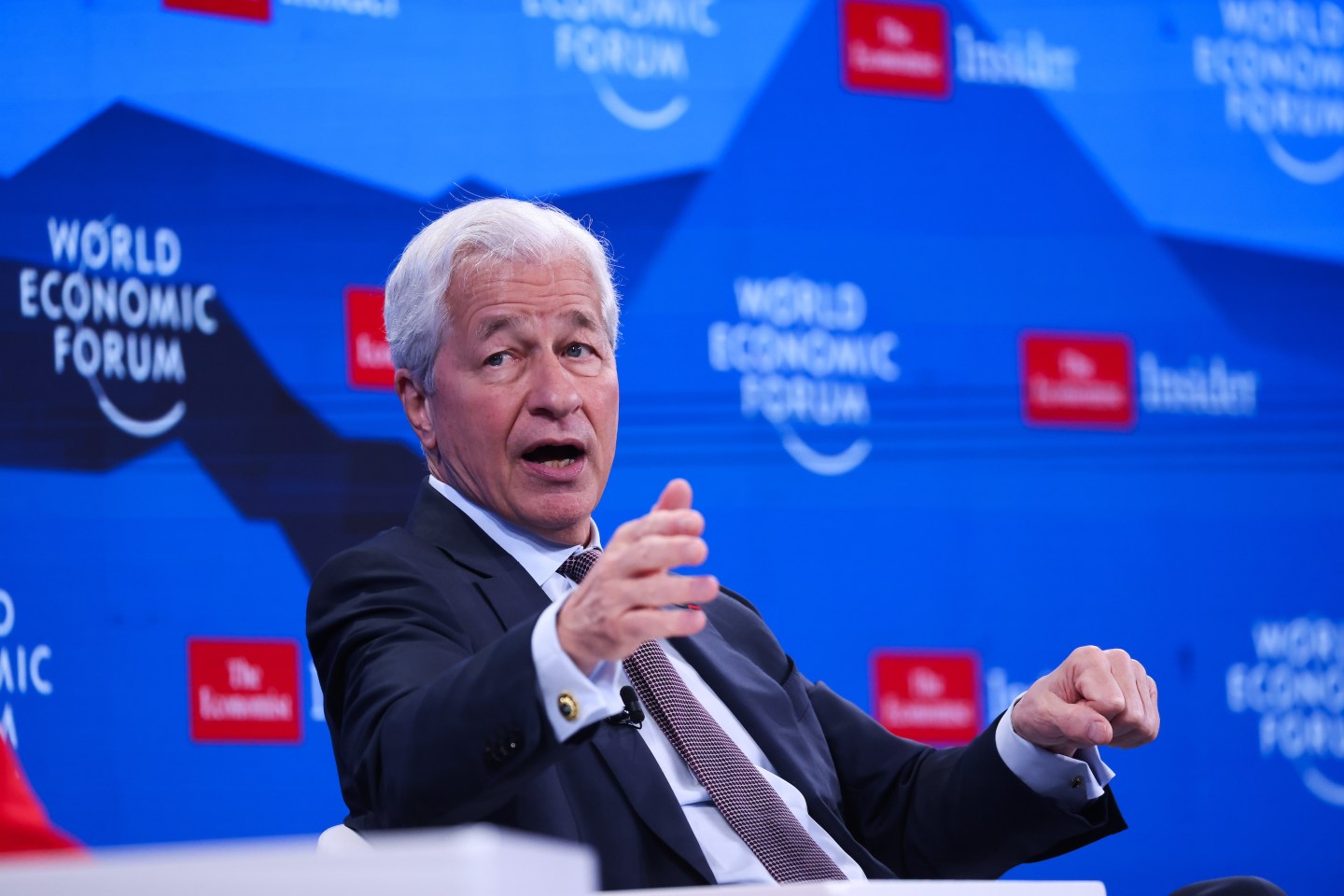Good morning,
When Macy’s Inc. CFO Adrian V. Mitchell talks strategy, people listen.
Years before joining Macy’s in November 2020, Mitchell began his career working at McKinsey & Company, where he spent 10 years doing large-scale transformations for Fortune 500 companies and learned how to implement initiatives for growth, the Harvard Business School grad told me.
“My first true finance job was as the CFO of Crate and Barrel Holdings, Inc.,” he says. “I was not a traditional CFO. I’m not an accountant. I didn’t come up through the traditional financial organization. But I had critical-thinking skills, curiosity, and the capacity to receive the CFO role.” He also served as COO and interim CEO at the company.

Mitchell uses his critical-thinking skills to help advance companies, keeping the livelihood of employees in mind, he says. “As an immigrant from Jamaica, I certainly do value the importance of companies being successful to really help families put food on the table, send their kids to school, and have a good quality of life,” he told me. When he was 8 years old, Mitchell and his family came to the U.S. and settled in Louisiana.
Since joining Macy’s (NYSE: M) as finance chief, he has been heavily involved in transforming the business, partnering with CEO Jeff Gennette. Mitchell names Gennette as a sponsor in his career who believed in him. “This is my first public CFO position,” he says.
When Mitchell and Gennette started working together, there was a “clear need for us to figure out a way to get back to financial health,” he says. The digital channel is “the driver of our overall enterprise growth.” But Macy’s is also maintaining an omnichannel approach, keeping its online business and physical stores linked, and a focus on off-mall stores.
The retailer has made some strides. Macy’s stated in its fourth-quarter fiscal 2021 earnings report that revenue rose 27.8% year-over-year to $8.66 billion. This beat Zacks Investment Research estimates of $8.45 billion. Digital sales were up 12% over Q4 2020, and up 36% over Q4 2019. Over the past six months, Macy’s stock price has risen 7%.
The result of refinancing is a bright spot, Mitchell says. “In 2021, we paid down $1.6 billion in debt early,” he explains. “We also have no material debt maturities for five years. And between 2027 and 2028, we have very manageable debt maturities.”
Secondly, “coming out of the pandemic, we had assets that were encumbered, meaning they were serving as collateral in case we hit a rough spot,” he explains. Earlier this year, Macy’s was able to remove properties that served as collateral including several flagship stores, more than 30 mall-based stores, and 10 distribution centers. “So, all of our debt towers are now unsecured, whereas before we had hundreds of millions of dollars of secured debt. This provides us important additional financial flexibility.”
And another bright spot is the financial health of the business coming out of 2021 compared to 2020, Mitchell says. “It enables us to weather macroeconomic disruptions,” he says.
‘We have a lot of debates’
Macy’s continual transformation is about “fundamentally changing the financial profile of the business by thinking differently about how we actually serve the customer, stay relevant to the customer, and grow market share,” Mitchell says. Attracting and retaining talent is also important. In November, Macy’s announced raising its company-wide minimum rate to $15 per hour, and adding a tuition benefit program.
Mitchell and his finance team partner with Macy’s transformation office, which represents a cross-section of leaders throughout the enterprise. The team helps implement “the right insights from the data, connecting the financial performance to the operating metrics and the operating insights,” he explains. “And we have a lot of debates.”
One recent hot topic: “When we think about the growth of our digital business, do we want to build a marketplace? Or do we want to continue to have control over the inventory?” Mitchell recounts. “It very easy to have control of the digital business, but marketplace platforms are a big part of what’s driving digital growth in U.S. retail.” Macy’s announced in November plans to launch a digital marketplace where selected third-party merchants can sell their products on macys.com and bloomingdales.com.
Mitchell, who has also held executive leadership roles at Boston Consulting Group and Target, pursued engineering before business. He earned a B.S. in chemical engineering from Louisiana State University. “It’s really shaped how I think about the use of data analytics, machine learning and algorithms, and how you actually transform legacy or traditional retail operations,” he says.
See you tomorrow.
Sheryl Estrada
sheryl.estrada@fortune.com
Big deal
Women in Technology: Key strategies to retain and attract diverse talent, a study conducted by S&P Global Market Intelligence with the California Technology Council and WE Global Studios, was released on March 29. It investigates key drivers of career satisfaction and dissatisfaction for women working in tech. About 57% of the respondents said flexible work hours and working from home is important for job satisfaction, followed by having women in leadership positions to serve as role models (51%), the report found. The findings are based on a survey of 626 U.S.-based women working in technology-focused roles across various sectors.

Going deeper
Three areas for CFOs to focus on as they shift from short-term inflation responses to longer-term strategies, a report by Gartner, provides recommendations for finance chiefs. An area of focus is compensation. "It’s critical for finance and HR to work together to monitor and dynamically adjust the organization’s pay practices and total rewards strategy throughout the year," according to Gartner.
Leaderboard
Brandon Turner was named CFO at CKE Restaurants, Inc., owner, operator and franchisor of Carl's Jr. and Hardee's. Most recently, Turner served as COO and CFO of Hero Bread, a food tech start-up. As CFO at Caribou Company Inc., he oversaw finance operations for five brands. His prior experience includes progressive leadership roles with Quiznos Subs, School of Rock and investment banking organizations.
Rodney Yoder was named CFO at Sunlight Financial Holdings Inc. (NYSE: SUNL), a technology-enabled point-of-sale financing company, effective April 1. He succeeds current CFO Barry Edinburg, who will remain at the company as an advisor to ensure a smooth transition. Yoder led financial analysis and corporate strategy at Barclaycard. He previously served as treasurer for Swift Financial for several years. Yoder started his career at MBNA America, which was acquired by Bank of America, where he spent 16 years in a variety of roles including divisional CFO for merchant acquiring.
Overheard
"The first step to slowing worker turnover is for C-suite executives to acknowledge the common stressors that lead to burnout among workers and prioritize their physical and mental wellbeing."
—Christine Trodella is the head of Workplace from Meta + Reality Labs, wrote in a Fortune opinion piece.
This is the web version of CFO Daily, a newsletter on the trends and individuals shaping corporate finance. Sign up to get it delivered free to your inbox.












